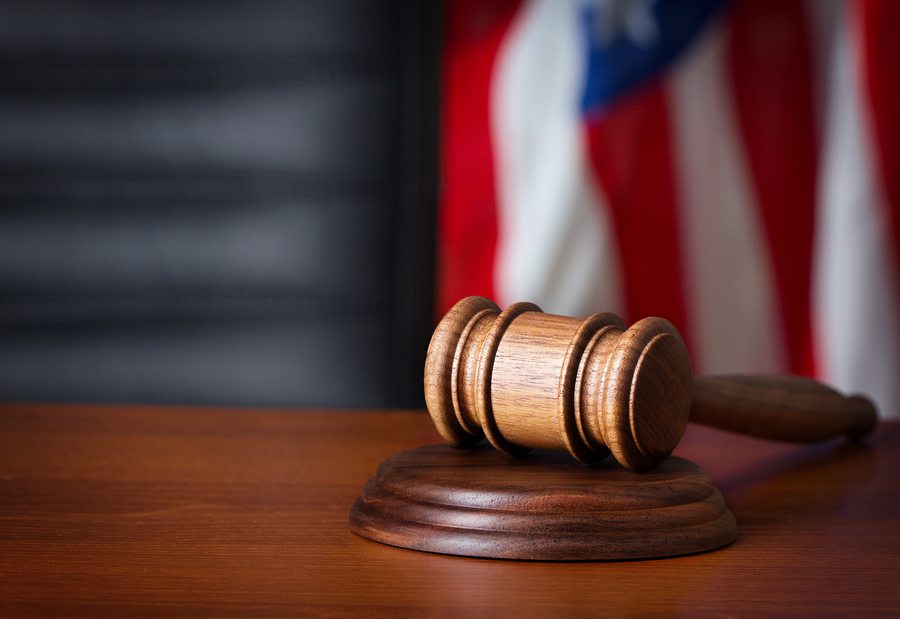Legal malpractice occurs when a lawyer acts negligently or with intent to harm and causes damages in a client. To win a legal malpractice lawsuit, the client must be able to show that a duty of care was established, that the attorney breached the duty to provide competent representation, and that it resulted in a loss for the client. Legal malpractice suits carry a high burden of proof, and an experienced legal malpractice attorney PA counts on at the Wieand Law Firm can help you understand if you may have a claim.
To sue for legal malpractice, you must first be able to demonstrate that you had an attorney/client relationship with the lawyer. Often this is determined through a written contract with the attorney. Next, you must demonstrate that the lawyer failed to meet a legal standard of care of what an average attorney would meet under those circumstances. The Superior Court in Schenkel v. Monheit, 405 A.2d 493 (Pa. Super. 1979) adopted the following simple standard of care: “The failure of the attorney to exercise ordinary skill and knowledge.”
Often, a document called a certificate of merit is required. In this document, an attorney working in the same practice area verifies that the legal standard of care was not met and that the work fell outside of acceptable standards. Finally, you must be able to show that you suffered damages directly related to the violation of the standard of care. Contact legal malpractice attorneys in PA and NJ at the Wieand Law Firm to determine if you have grounds for a legal malpractice case.
Legal malpractice claims often fall under several categories:
Missed Deadlines – an attorney who fails to file documents on time may be liable for legal malpractice. Failure to submit documents on time can result in financial losses for the client or lead to the entire case being dismissed. Missed deadlines are an example of transactional errors. A legal malpractice attorney PA counts on can help you recover money that you lost as a result of the error.
Inadequate discovery – An attorney who fails to commit time and effort into a case may fail to discover key facts that are important to the case.
Pressure to Settle – A lawyer must act to guide their client through the legal process. However, lawyers can not place undue pressure to settle a case. A qualified attorney is tasked with explaining the available options and their potential consequences. Ultimately, it is the client who should decide whether to settle the case.
Failure to Inform – the attorney may be liable for legal malpractice if he fails to update the client on important or relevant case information.
Lack of Consent – an attorney that acts without verbal or written consent of his client. One example of lack of consent would be a lawyer who authorizes a settlement without consulting with the client. The client would need to show that this unauthorized settlement caused them harm to prevail in the claim.
Conflicts of Interest – These conflicts occur when an attorney put their interests ahead of the client’s interests. This could include failure to provide full disclosure, intentional professional misconduct, or improper relationships with members of the opposing party.
Ethics Violations – An attorney is required to act in accordance to the client’s best interests. An attorney who does not act in accordance with the client’s best interests is in violation of the Code of Professional Responsibility. Examples of ethics violations may include charging unreasonable fees, exaggerating their experience or qualifications, or conflicts of interests.
Attorneys have a duty to provide competent representation. However, sometimes attorneys may errors that jeopardize their client’s case. These errors are often caused by careless actions and omissions. Even if your lawyer’s error was not intentional, you still have legal rights and may be able to pursue a claim with a legal malpractice attorney PA trusts. Examples of transactional errors that can spur legal action include:
Transactional errors involving a lawyer’s trust account can result in discipline for the offending attorney. These errors can include co-mingling client funds with the law firm funds, withdrawing funds from the wrong client’s trust account, or spending trust account funds that have not yet been earned.
Lawyers committing these errors may suffer disciplinary action and be required to reimburse the client for their losses. Contact a legal malpractice attorney PA depends on for representation in these types of cases.
At Wieand Law, our team of attorneys conducts a comprehensive investigation and invests the time and resources needed to support your claim. These complex cases demand a skilled legal malpractice attorney PA counts on for competent, experienced legal representation.
 Inadequate Discovery Cases
Inadequate Discovery CasesConducting a thorough investigation to obtain evidence is one of the most critical aspects of your attorney’s job. Relying on the defendant’s narrative of the incident is unlikely to achieve success for the client. Inadequate discovery and investigation can surmount to a violation of your lawyer’s duty to competently represent your interests.
Your lawyer should be fervent in discovering the evidence needed to support your case. However, some lawyers cut corners due to expense, lack of resources, or inexperience. If you believe your lawyer failed to perform an adequate discovery to obtain evidence, reach out to a legal malpractice attorney PA trusts for assistance. You many have a case for legal malpractice if your lawyer:
At the Wieand Law Firm, we understand importance of a robust discovery and investigation of your case. This understanding comes from years of experience in the practice of law. Attorney Brent Wieand has been recognized by:
Put our lawyers to work to help you obtain justice for the legal malpractice that caused you financial loss. Call 215-666-7777 today to speak directly with a legal malpractice attorney PA trusts about your case.
At Wieand Law, a respected legal malpractice attorney PA relies on can help you understand your legal rights. Pressure to settle may be legal malpractice in Pennsylvania.
Many cases are settled out of court. Accepting a settlement means that your case will not be heard by a jury and the settlement is final. There are many benefits to settling outside of court. For example, a plaintiff may receive their compensation more quickly by accepting a settlement then proceeding through a trial. Additionally, a settlement will provide mutually agreeable, guaranteed compensation for the plaintiff while taking the case to trial means that the jury will decide what, if any, compensation the plaintiff will receive.
However, an attorney is not permitted to pressure a client into settlement. Rather, they should inform the client of their legal options and the potential consequences of those options. Some attorneys pressure clients to settle for reasons such as:
 How to Prove a Legal Malpractice Case in Pennsylvania
How to Prove a Legal Malpractice Case in PennsylvaniaProving legal malpractice can be complicated. The first element in proving a malpractice claim is demonstrating that you had an attorney-client relationship established with the lawyer, and that the lawyer owed you a duty of care.
Next, you must demonstrate that the lawyer made and error that amounted to negligence. This means that the lawyer acted in a fashion that is outside the parameters of how a reasonable lawyer would act in that situation.
Finally, you must demonstrate that the lawyer’s error caused you to sustain a financial loss. Proving this aspect of the case can be complex, especially when you need to demonstrate that your claim based on the fact that you lost your case due to the attorney’s error.
In addition, to prove a legal malpractice case in PA, you must follow legal requirements, including procedural requirements, time limits, and evidentiary support standards. A legal malpractice attorney PA counts on at the Wieand Law Firm can navigate the process to help you receive the maximum compensation for your claim.
Specific steps must be taken to file your claim. These steps include:

The Supreme Court in Pennsylvania has upheld that you can sue an attorney over a settlement amount in cases in which fraud or negligence is alleged. The courts of the Commonwealth will not permit a plaintiff to sue their attorney on the basis of the adequacy of the settlement amount that the plaintiff agreed on, unless that plaintiff can show he was fraudulently induced to settle the original matter.
In a recent case, Khalil v. Williams, the plaintiff alleged that her signature was forged on a legal release agreement and that she received negligent legal advice. The Supreme Court of Pennsylvania found that the plaintiff was not only challenging the settlement amount from her case, but also alleging that the defendant provided incorrect legal advice regarding the scope and effect of a legal release. The Supreme Court agreed with the plaintiff that the case could proceed.
An attorney has a duty to perform their duties with competence, honesty and diligence. Deviation from these standards, including a failure to disclose material terms of a settlement agreement, must be thoroughly explained to the client. An attorney who acts in manner that is fraudulent or negligent may be liable for legal malpractice.
Awards for legal malpractice cases are typically the economic difference between the client’s actual award and what the client would have obtained if the matter was not handled negligently. In cases in which the legal malpractice affected the defendant in a matter, the damages can be the difference between the amount of the judgement against the client and the absence of that judgment had the client won their case.
Generally, emotional and psychological distress damages are not recoverable damages in legal malpractice cases. While these damages are excluded from the legal malpractice claim, emotional distress damages may be recovered from the underlying injury from the matter that was negligently handled.
For example, let’s pretend you allege that your attorney mishandled a motor vehicle case. While you may not be able to include emotional distress as damages you suffered from the legal malpractice, those damages may be recoverable as part of the overall losses sustained in your mishandled motor vehicle claim. Stated another way, the client may be able to sue the attorney for the dollar value of the lost judgement in the motor vehicle claim, including emotional distress, but not for the frustration they faced from the legal malpractice.
Exceptions to recovery of emotional distress damages may apply. Consult with the legal malpractice attorney PA trusts at the Wieand Law Firm to understand how these rules affect your potential case.
In Pennsylvania, you must file a claim within two years of the date of the legal error when the case alleges attorney negligence. Breach of contract claims typically have a four-year statute of limitations. This right to sue exists regardless of whether the error was intentional or accidental. Contact a legal malpractice attorney Pennsylvania counts on to understand how the statute of limitations applies to your claim.
 Hiring a Legal Malpractice Attorney PA Trusts
Hiring a Legal Malpractice Attorney PA TrustsLegal malpractice cases can be complicated, and it’s important to hire an attorney who understands your needs and the legal requirements of these cases. The Wieand Law Firm, LLC has experience in malpractice cases and will aggressively represent your interests.
Contact our legal malpractice lawyers for a free consultation and case review. We will listen closely to your situation and advise you of the legal options available to you. Contact 215-666-7777 or send us a message via the online form to speak directly with an attorney.
*Disclaimer: Results may vary depending on your particular facts and legal circumstances. Any accolades or awards such as “Rising Star” “Super Lawyers” and “Best Lawyers of America” have not been approved by the Supreme Court. The attorney was on a list so designated, not that he or the firm possesses those qualities in comparison to other attorneys and/or law firms. A description of selection methodology can be found at: http://www.superlawyers.com/; https://www.bestlawyers.com/united-states/medical-malpractice-law-plaintiffs
